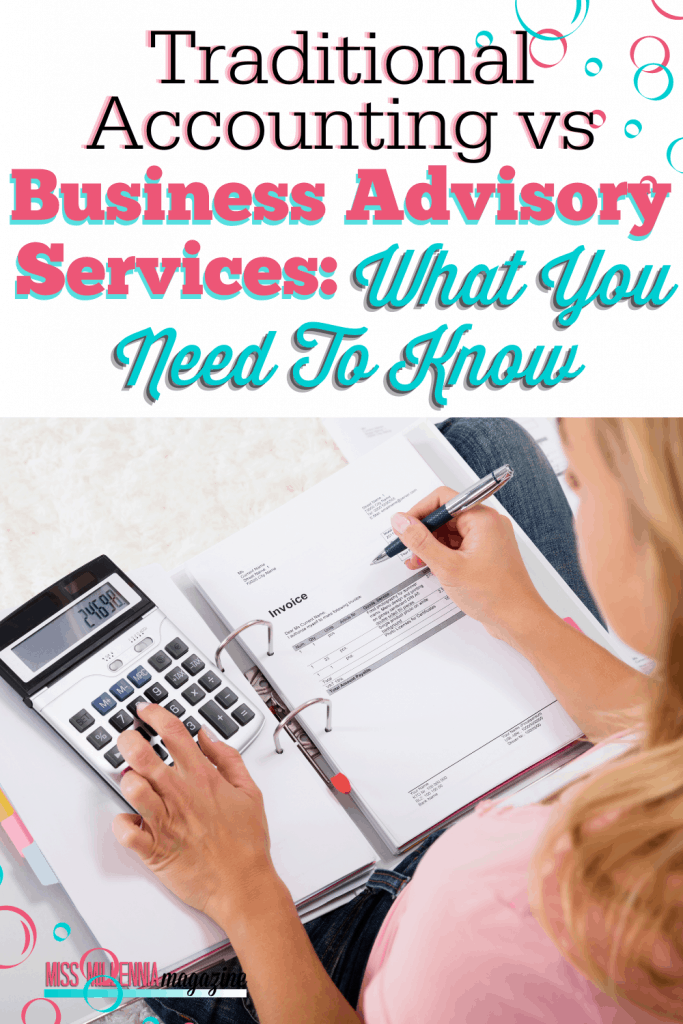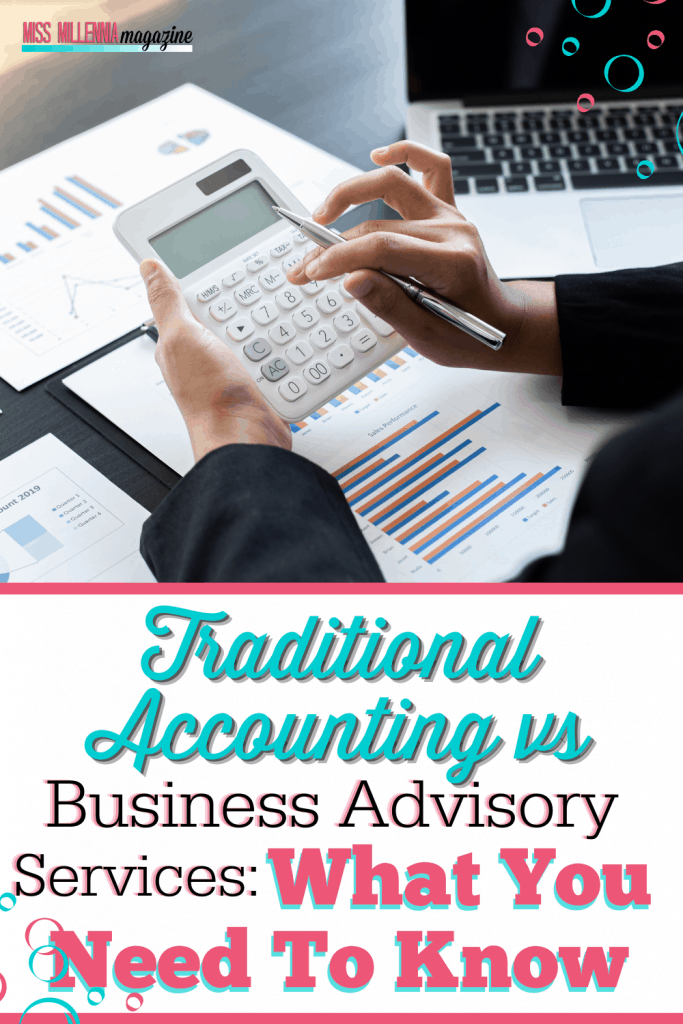Traditional Accounting vs Business Advisory Services: What You Need To Know

In the age of technology, accountants find themselves with a decision to make. They need to learn the difference between traditional accounting vs business advisory services. In other words, do you keep providing the traditional services, such as bookkeeping? Or, do you branch out and offer business advisory services?
With an increasing number of clients seeking the latter, it is highly advisable to consider going down this route sooner rather than later. More and more clients are signing up for accounting services that are based on integrated cloud systems, online payment gateway systems, dashboards, and management accounts. They are willing to pay a monthly or quarterly fee, depending on the frequency of the service, for this.
This presents accountants with an excellent opportunity to increase their profit levels while also enhancing customer loyalty. However, a lot of accountants are put off, and this is because it can seem like a massive change to implement. They worry about how they are going to market the service.
You need to be clear about what you can offer—business advice, not merely a bunch of reports. You must show how this is going to be of benefit to your clients. Sourcing the right dashboard is half of the battle.
By doing this, your job will become much easier. You will be able to view all of your clients’ data and implement Key Performance Indicators (KPI) that will make it easy for you to assess your clients’ performance to see if they are meeting their goals. You will also be able to generate reports with the click of a button, saving you both time and money.
Benefits Of Software Solutions vs. Consultancy
What about when you need advice yourself as an accountancy firm? Business advisory comes in many shapes and forms. Many people have a tendency to assume that when you require business advice, your only option is to seek a consultancy firm where a specialist can assess your company and provide you with their findings.
However, this is not the case, as you do have the option of advisory software instead. Read on to discover why this is something you should consider.
The problem with consultancy services is that you are relying on the opinion of one person or sometimes several people. Although they may have plenty of experience in the field, it is still their opinion at the end of the day. And, how well can they really get to know your business in such a short space of time? They will, of course, conduct interviews with you and look nto your data, but is that enough?
Another option is to use business advisory software. This solution will assess all of your data as well by collating it from your various systems. However, instead of being presented with a report that is formed on someone else’s view, you will be presented with impartial information that you can use as you wish.
Such software makes data easy to digest and gives you the platform to spot any trends or vulnerabilities so you can make the necessary changes. You are able to implement KPIs, and you can monitor your performance in regard to these. Moreover, as all data is tracked, it is easy for you to go back over prior information.
Why You Need Business Advisory Software
All accountancy businesses need to constantly monitor their performance and strive to be better. In today’s business climate, you cannot afford to be complacent. If you don’t focus on growing your company, you are only going to get left behind.
One of the best ways to give your business the platform to excel is to invest in business advisory software. That’s why the conversation about traditional accounting vs business advisory services is so important.
If you take a look on the Internet, you will see that you have an unbelievable number of software solutions to choose from. However, one of the best options is a business dashboard. This is a solution that collects data from all of your systems, presenting it on one easy-to-use interface. This makes it easy for you to find any information you require while also having full visibility regarding the performance of your business.
You will be able to implement Key Performance Indicators (KPIs), which you can use to see if you are on your way to achieving your goals or whether you are failing to do so in certain areas. With this sort of clarity, you will have the ability to spot areas where you can improve your company. This is often better than any business advice a professional can give you.
Moreover, there are many more benefits associated with business software. For example, you can boost efficiency levels and reduce the workload your employees face. This is because you will be able to automate reports, which would typically take a significant amount of time otherwise. You also make it easier for employees to do their job, as all of the data they need is available via the click of a button.
Effective Dashboard Development
A business development dashboard is something that is widely used by businesses so they can gauge their performance and develop their business to achieve their goals. In this post, we are going to talk you through three key ingredients that are required for an effective dashboard.
There are some exceptional business dashboard solutions available, but merely choosing the right one is not enough, you need to implement it effectively. There is only one place to begin, and this is with choosing effective metrics for your KPI dashboard.
You should be able to define appropriate metrics that are meaningful to your business and your stakeholders by focusing on the objectives of your company. Effective metrics do not only monitor performance, but they result in defining action and improvement.
Start by selecting a few main metrics to begin with, after which you can add more strategic elements. This also ensures that your business objectives drive the process, as opposed to the available data and tools.
If you fall into the trap of allowing the tools and data to dictate the process, you risk rendering the initiative irrelevant to performance issues. You also need an executive on board who understands the challenges your business faces to ensure your dashboard remains relevant.
Finally, simplicity is key. You need a dashboard that is easy to implement and utilize. Unrealistic expectations are one of the main reasons why dashboard initiatives fail to succeed.
What do you think about traditional accounting vs business advisory services? As an accountant, what services are you going to provide?










